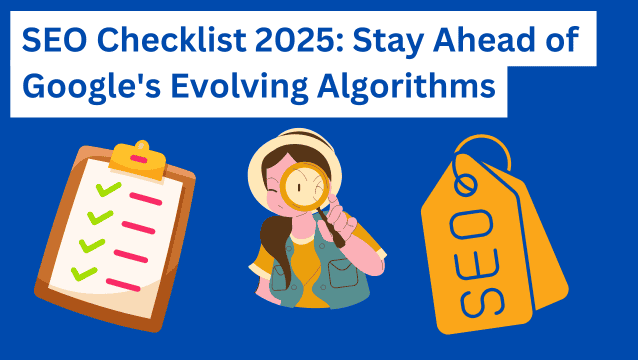Google’s John Mueller addresses developers’ questions about whether desktop optimization is still relevant.
On July 5, 2024, Google announced completing its mobile-first indexing initiative, with Mueller saying Google will not index or rank websites not accessible on mobile devices after that date.
Here’s a reminder of Google’s announcement:
- “We’re embarking on our final last step (that’s the plan!) of our migration to a mobile-first index for Google Search: the small set of sites we’ve still been crawling with desktop Googlebot will be crawled with mobile Googlebot after July 5, 2024. After July 5, 2024, we’ll crawl and index these sites with only Googlebot Smartphones. If your site’s content is not accessible at all with a mobile device, it will no longer be indexable.”
Since then, some in the developer community have wondered whether desktop SEO is still necessary, given Google’s move towards mobile-first indexing.
Responsive website or mobile-only
A new developer working for a firm focusing on developing a mobile-only website version asked Mueller if they should abandon optimizing the site’s desktop version, considering Google’s shift to mobile-only indexing.
Here’s the developer’s question:
- “I am currently in a discussion at my new company because they are implementing a different mobile site via dynamic serving instead of just going responsive. Next to requirements like http vary header, my reasoning is that by having two code bases we need to crawl, analyze, and optimize two websites instead of one. However, this got shut down because due to mobile-first indexing, we no longer need to optimize the desktop website for SEO. I read up on all the google docs, etc, but I couldn’t find any reasons as to why I would need to keep improving the desktop website for SEO, meaning crawlability, indexability, using correct HTML etc. etc. What reasons are there, can you help me?”
Mueller responded by stressing the need to continue the desktop version, explaining the importance of optimizing it despite the ongoing mobile-only indexing.
Here’s how the conversation played out.
Responsive sites are still crucial
Mueller advised the developer that neglecting desktop SEO could hurt overall traffic and rankings as Google still factors in desktop optimization and compatibility in its evaluations.
Mueller also mentioned the advantages of having a responsive website that works well on desktop and mobile devices. This way, visitors using desktop browsers can access the site, eliminating the need to manage two websites.
John’s answer to the question:
- “First off, not making a responsive site in this day & age seems foreign to me. I realize sometimes things just haven’t been updated in a long time, and you might need to maintain it for a while, but if you’re making a new site.”
Mueller further explained the need for a website that is user-friendly for desktop users and other search engines and crawlers.
He also said focusing on mobile could neglect potential web traffic; the best approach is to include desktop as it caters to the user’s diverse preferences.
Mueller`s explanation:
- “With mobile indexing, it’s true that Google focuses on the mobile version for web search indexing. However, there are other search engines & crawlers / requestors, and there are other requests that use a desktop user-agent (I mentioned some in the recent blog post; there are also the non-search user-agents on the user-agent documentation page).”
He added sites don’t live in isolation or exist only to be crawled by Google.
- “All in all, I don’t think it’s the case that you can completely disregard what’s served on desktop in terms of SEO & related. If you had to pick one and the only reason you’re running the site is for Google SEO, I’d probably pick mobile now, but it’s an artificial decision, sites don’t live in isolation like that; businesses do more than just Google SEO (and TBH I hope you do: a healthy mix of traffic sources is good for peace of mind). And also, if you don’t want to have to make this decision, go responsive.”
Mueller advises to pick your battles
The developer told Mueller that the firm had already decided to focus on mobile, to which John responded, pick your battles:
- “If this is an ongoing project, then shifting to dynamic serving is already a pretty big step forwards. Pick your battles :). Depending on the existing site, sometimes launching with a sub-optimal better version earlier is better than waiting for the ideal version to be completed. I’d just keep the fact that it’s dynamic-serving in mind when you work on it, with any tools that you use for diagnosing, monitoring, and tracking. It’s more work, but it’s not impossible. Just make sure the desktop version isn’t ignored completely :). Maybe there’s also room to grow what the team (developers + leads) is comfortable with—perhaps some smaller part of the site that folks could work on making responsive. Good luck!”
Strike a balance between SEO and user experience
Mueller finished the conversation by emphasizing the goal shouldn’t be to optimize a site only for Google but to ensure it’s accessible on all devices by striking a balance between user experience and SEO.
John added, “A responsive website across platforms like mobile and desktop, fast, and accurate loading times are key to a seamless browsing experience.”
The sentiment from Mueller is that continuing to focus on desktop SEO could give you an edge over your competitors who don’t during the transition to mobile-first indexing.


